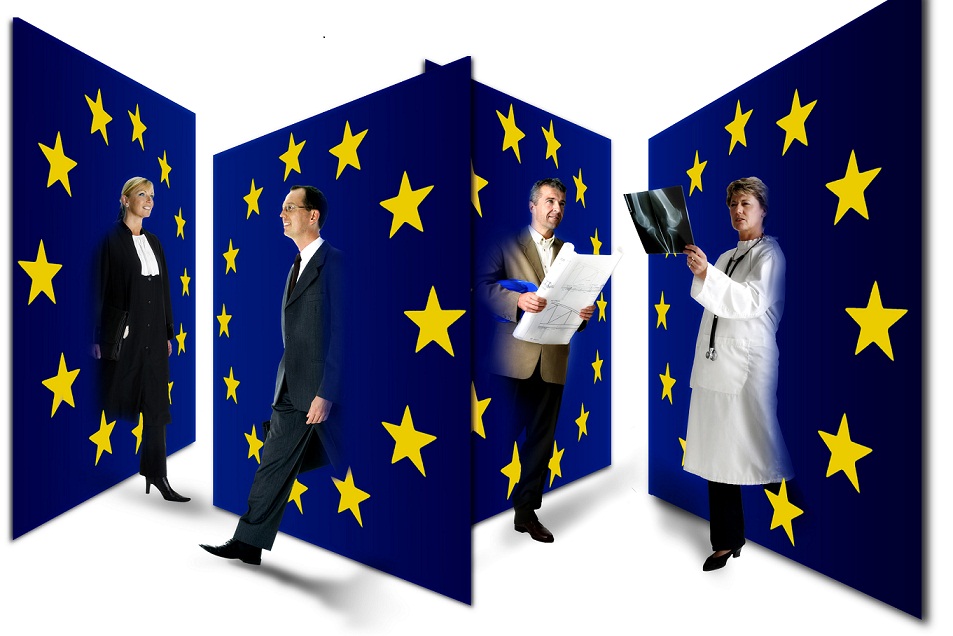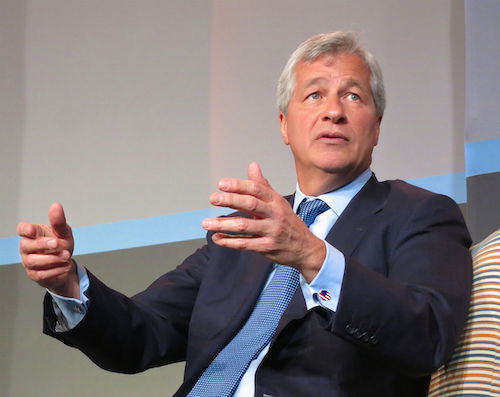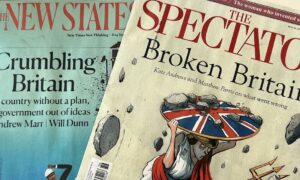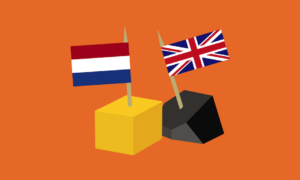(Editor’s note: Steve Kaufman and Terry Boyd contributed to this post. Forgive us as we indulge in a little post hoc, ergo propter hoc speculation about employment changes under Brexit. It’s fun to try to read the tea leaves.)
Now hiring: American companies seek high-level candidates for European jobs. Competitive salaries. Good benefits. Attractive locations.
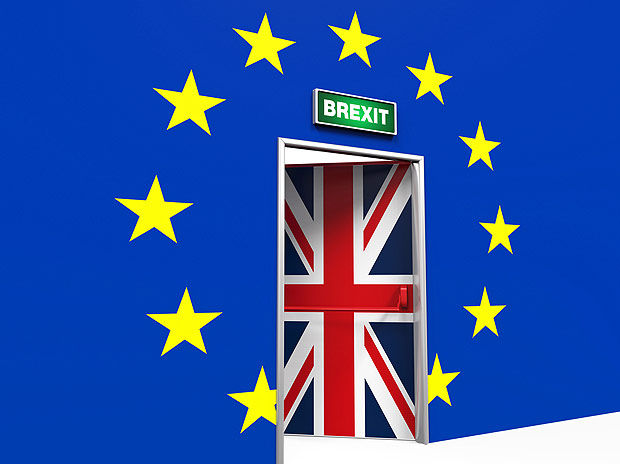 At this moment, President Obama and American captains of industry should all be writing thank you notes to Boris Johnson and Nigel Farage. With Brexit, the door is suddenly open to U.S.-based corporations to complete their conquest of Europe. So we’ve compiled a look at American companies you know that have large European headquarters operations; or, in some cases, familiar American brands that – surprise! – are actually based in Europe.
At this moment, President Obama and American captains of industry should all be writing thank you notes to Boris Johnson and Nigel Farage. With Brexit, the door is suddenly open to U.S.-based corporations to complete their conquest of Europe. So we’ve compiled a look at American companies you know that have large European headquarters operations; or, in some cases, familiar American brands that – surprise! – are actually based in Europe.
Increasingly, they will be physically in Europe and not in the United Kingdom if the British prime minister – whoever he or she turns out to be in October – invokes Article 50 to leave the European Union. The U.K. leaving the E.U. – and Brits possibly losing their E.U. employment status and work privileges – potentially changes everything. That certainly includes employment possibilities to the better for U.S. expats, and to the worse for Brits, who previously filled the upper ranks of European corporations, especially banks.
(If you simply go down the list of giant U.S. multi-national operations in Europe, you find many of the CEOs there are not American but Brits such as Mark Hutchinson, GE’s president and CEO for Europe.)
Last Thursday’s Brexit vote pretty much guarantees the United Kingdom gives away its dominance of the finance industry in Europe. The Financial Times is reporting banks already are preparing to shift operations out of the U.K. U.S. banks notably are preparing for the possibility Brexit will jeopardize their rights to sell financial products and services from Britain to EU clients.
From the FT post:
The big US banks — JPMorgan Chase, Goldman Sachs, Bank of America, Citigroup and Morgan Stanley — have large operations employing tens of thousands of people in the UK. They have historically set up their regulated businesses in Britain and then used its right to “passport” into the rest of the 28-member bloc.
Not any more.
Lawyers are warning American financial CEOs that after Brexit, they’ll need new home bases, suggesting Dublin, Paris and Frankfurt as alternatives, according to the FT post. Jamie Dimon, J.P. Morgan Chase chairman and CEO, sent out a memo Friday stating the Wall Street financial services giant “may need to make changes to our European legal entity structure and the location of some roles.” Earlier Dimon said he’ll realign European operations to reflect the post-Brexit reality. His investment operations, J.P. Morgan, has 8,000 staffers in London and 16,000 in the U.K.. Bank of America Merrill Lynch has 8,000 employees in London. Citi Bank has 7,000.
Morgan Stanley is reportedly considering moving 1,000 of its 6,000 employees out of London to the continent.
But the financial services sector represents just a tiny fraction of jobs that could be affected. And after Friday morning’s Brexit results, the Republic of Ireland could turn out to be the big Brexit winner. International companies increasingly locate manufacturing or research facilities in Spain, Portugal and Ireland, and Ireland is arguably the software capital of Europe.
Switzerland, of course, has long been the European home of many knowledge-based American giants such as IBM, Yahoo and Google, among many others, though those jobs often require Masters or Ph.D degrees and, not unreasonably, multi-lingual capabilities most American expats lack.
But Ireland? Yes, the Emerald Isles have benefited from $277 billion of direct foreign investment from the U.S. in the past two decades. Earlier this year, Apple announced it would build a $940 million date center in County Galway, the company’s largest data collection hub in Europe, a source of 300 new jobs.
In fact, according to the American Chamber of Commerce in Ireland, there are 700 U.S. companies based in Ireland, employing 140,000 people. The names on the buildings include Intel, Boston Scientific, Dell, Pfizer, Google, Hewlett Packard, Facebook and Johnson & Johnson. That said, the Republic of Irelands is losing about 5,000 jobs as Intel moves operations from there to China. On the other hand, Google has at least 6,000 employees in Ireland. Google executives have said that 70 percent of the jobs in Dublin are held by foreign nationals. Which tells you a lot about the global push for talent, techpats.
Several European countries – particularly Germany, Austria, the Netherlands and the Scandinavian countries – have companies exporting more technical, chemical, pharmaceutical and engineering products and equipment, than they have ever done in their entire history. Which makes talent increasingly hard to find. So, says the website Jobline.net, “If you’re well-qualified, well-educated and do not mind change, Europe is still a good destination to search for a job.”
Many American companies (as well as Canadian and Asian) have European headquarters sites, most based in countries such as the Republic of Ireland or Switzerland offering some tax advantages. “Headquarters are usually expense centers, rather than revenue generating units,” says Jobline. “That makes the tax regime important.”
Just for fun, we threw together a list of the biggest employers in Europe. As a rule, the regional headquarters of North American companies tend to be located in the U.K., Switzerland and the Benelux countries, while the largest subsidiaries of international companies tend to be in Germany, France and the U.K.
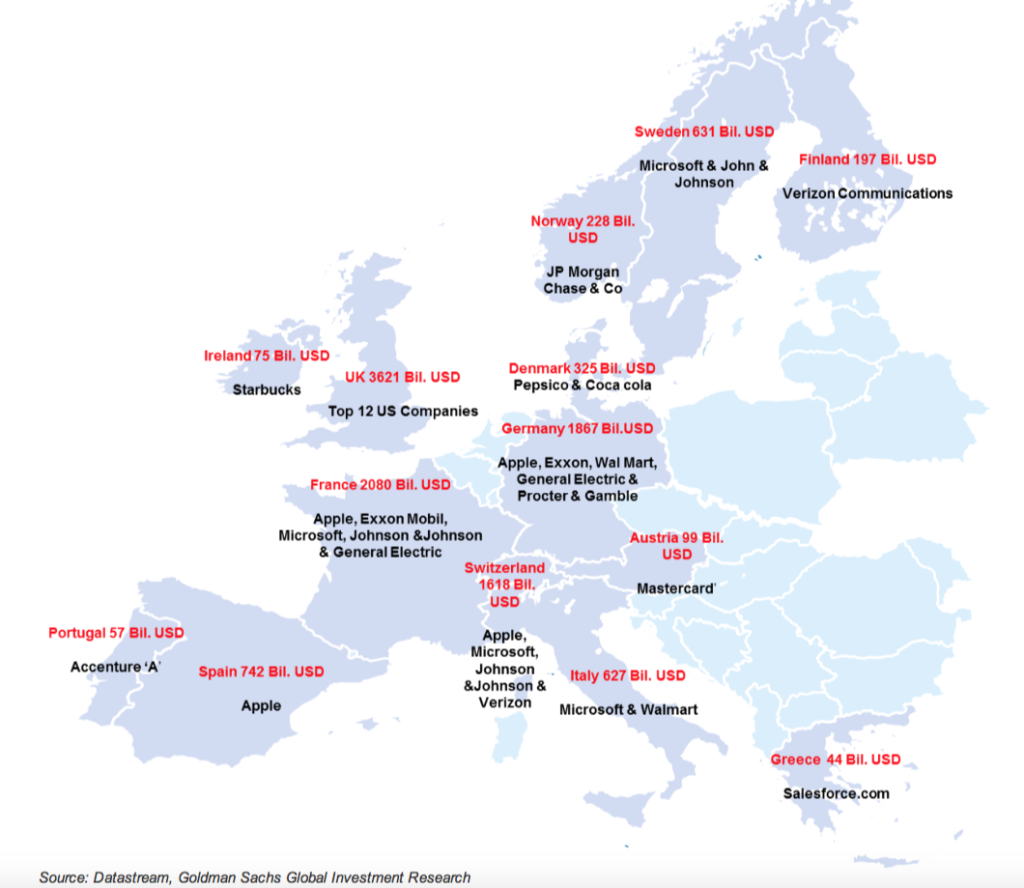
A US EQUITY MAP OF EUROPE – US COMPANIES SHOWN IN EACH COUNTRY EQUATE TO THE TOTAL SIZE OF THE TOTAL MARKET CAPITALIZATION IN THE COUNTRY.
We found this list put together by Goldman Sachs Global Investment Research, which gives some perspective on just how the scale of U.S. business dwarfs individual EU member states (based on total market capitalization as of 2015):
- Apple alone is the same size as the whole Spanish equity market and bigger than Italy.
- The whole Italian stock market is worth about the same as Walmart and Microsoft combined the S&Ps 3rd and 6th biggest companies
- The German equity market (Europe’s biggest economy) is no bigger than the S&Ps 4 biggest companies
- The 40 biggest French companies (the CAC40) are no bigger than the US top 5
- Greece is no bigger than Salesforce.com, a company that has been public for a little over 10 years
- Starbucks is the same market capitalization as the whole of Ireland
When it comes to hosting U.S. companies, by and large, Switzerland is the big winner.
Geneva has gobbled up multinationals’ headquarters locations. Why? Its central location in Europe; its proximity to Africa and the Middle East; its quality of life; its excellent infrastructure; its highly educated and multilingual workforce; and the stable and secure surroundings. International banks, renowned high-tech and biotech companies, as well as the world’s leading trading companies, have all chosen the city for their headquarters or a key office.
You might be surprised by the list of American brands with large Geneva offices:
American Express Bank; AT&T International; Bacardi Martini; Burson Marsteller, McCann Erickson and Grey Worldwide, three of the big Madison Avenue agencies; Cambridge Technology Partners, the Boston-area software consulting company; Caterpillar construction equipment Citibank; Colgate-Palmolive; Columbia Sportswear Co.; Conagra International; Deloitte and Ernst & Young, the accounting and consulting firms; DHL Express and Federal Express; Dow and DuPont, the chemical companies; Eastman Kodak; big pharma’s Eli Lilly; Gillette; Hewlett Packard; Hughes Aircraft; IBM (Microelectric Division); Lockheed Martin; Polo Ralph Lauren; Procter & Gamble; Sylvania Lighting; Union Carbide; Yum Restaurants Intl.; and The Metropolitan Museum of Art.
Kraft Foods has its European HQ in Zurich. Philip Morris now has its worldwide HQs in Lausanne, Switzerland; Cargill Intl. is in Geneva; the Energizer bunny also keeps going and going and going out of Geneva; so does Motorola. That great old American chocolate brand, Nestlé, with its assortment of so many home-grown consumer items: Cheerios, Carnation, Libby’s, Ovaltine. The Nestlé company, of course, is as American as Heidi, founded 150 years ago in Vevey, Switzerland.
Even Tupperware Intl. is in Eysins, Switzerland. (It also has a large facility outside of Amsterdam.)
Moving out of Switzerland, the 20 biggest companies in Europe include corporate names and brands that are distinctly American, and some that just feel American. Nike is in the Netherlands, too, as is Texas Instruments and Foot Locker.Siemens, for example, is based in Munich, though the ubiquity of its engineering brand in American advertising makes it feel as if it’s right in the U.S. (It does have a large U.S. headquarters in Washington, D.C.)
What’s more American than Anheuser-Busch, the king of beers founded in St. Louis? But since its acquisition by the Belgian brewer InBev in 2008, its new international home in Leuven, Belgium.
The Shell Oil Co. out of Houston, its yellow shell-shaped signs a roadside fixture in the U.S. Its real home is in The Netherlands, founded in The Hague in 1890 as Royal Dutch Petroleum.
Then there are those pharmaceutical giants that straddle both sides of the Atlantic Ocean but generally began life in Europe. Now, the results of many international mergers, the big drug companies are generally headquartered overseas. London-based GlaxoSmithKline, though its American subsidiaries still have homes in Philadelphia and Research Triangle Park, N.C. Or Roche Pharmaceuticals, based in Basel, Switzerland, but with various ancestral research and chemical homes in Parsippany, N.J.; Rockaway, N.J.; Tucson, Ariz.; Branford, Conn.; and South San Francisco, Calif.
John Deere, the Moline, Ill.-based heavy equipment giant, has a large manufacturing facility in Mannheim, Germany. Ford Motor Co. has its European HQ in Cologne. Xerox has a tech research center in Grenoble, France. Dell Computer is in the UK. IBM Europe is in France. A.T. Kearney is in Italy, along with A.C. Nielsen and Arthur D. Little.
“If you are looking for a job at a regional headquarters location, Switzerland, Belgium, Holland, the United Kingdom and Ireland are the places to look for that,” says the Jobline web site. “If you’re seeking high-level manufacturing, engineering, R & D and distribution jobs, the German subsidiaries of international companies are more likely to offer these jobs.”
The general suggestion is, Europe is hiring, come on in and fill out an application. We’ll have updated posts about which big corporations, including Amsterdam-based Philips Electronics, are hiring in Europe.


